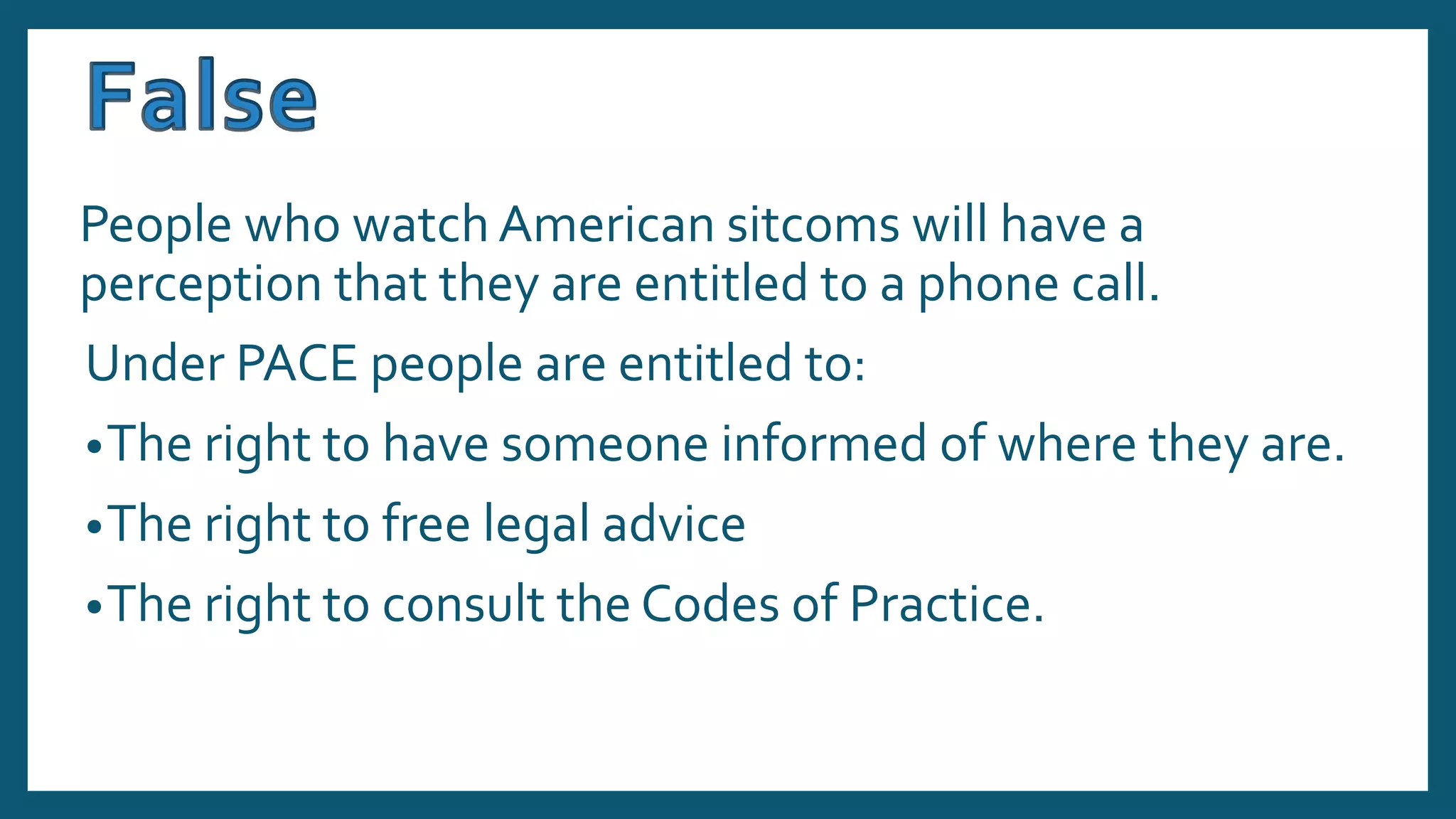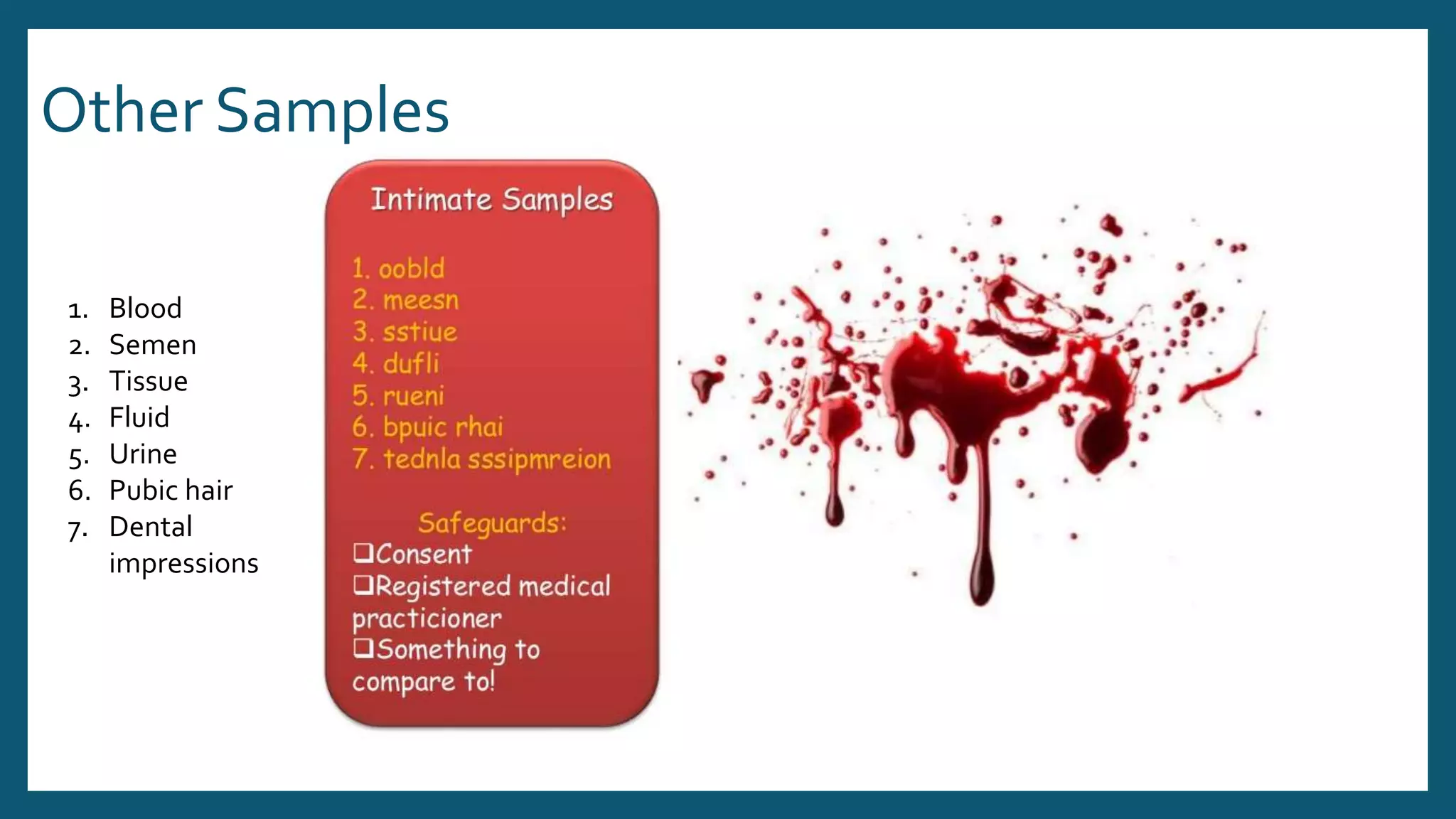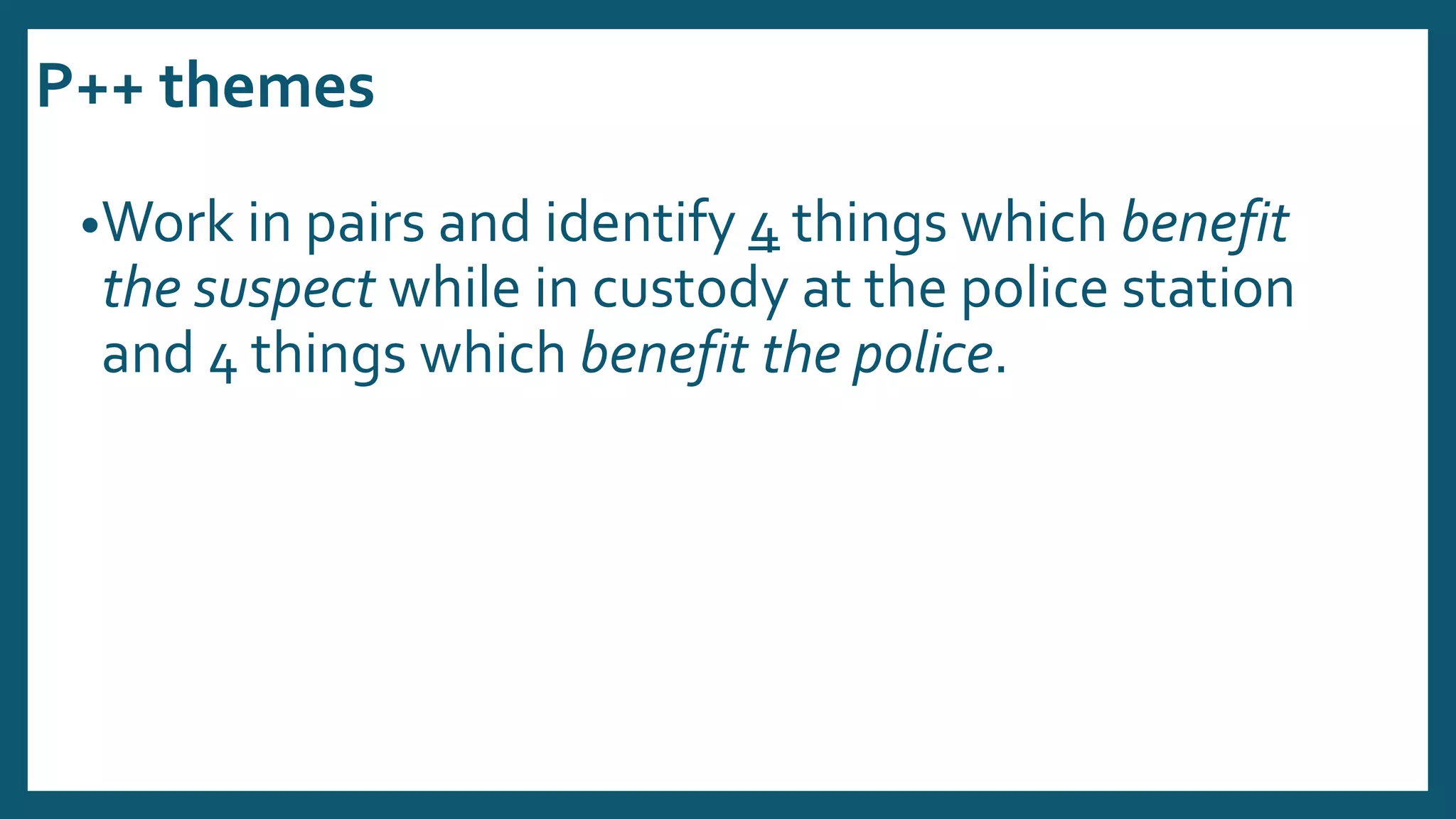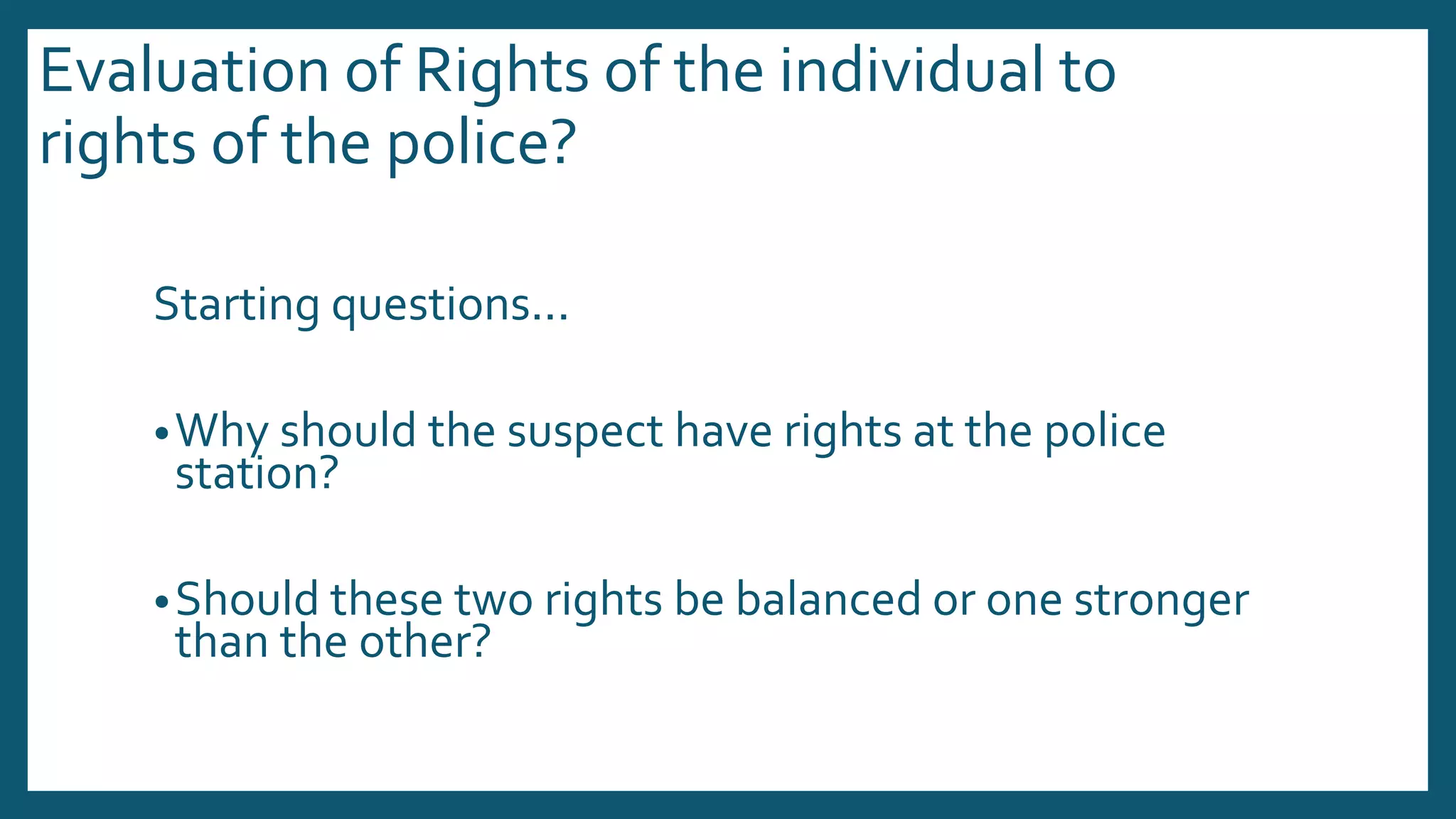The document outlines police powers to detain, search, and question suspects under the Police and Criminal Evidence Act 1984 (PACE). PACE introduced codes of practice that set time limits on detention and ensure suspects have rights like access to legal advice. The codes also place restrictions on police questioning and searches to balance investigatory powers with protecting suspects' rights and privacy.


























